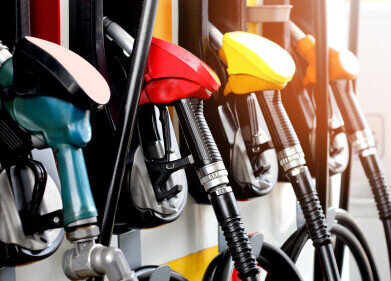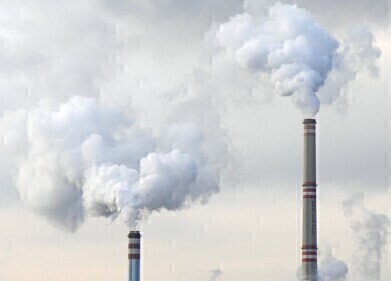Synthetic Fuels
Synthetic Fuels - What, How & Why
Nov 07 2022
Of all the technologies that have the potential to step up and combat climate change, synthetic fuels are one of the most exciting. Many experts hail synthetic fuels as the “missing link” needed to pivot away from fossil fuels and towards a net-zero global economy. So, what exactly are synthetic fuels and how can they help address issues like global warming, air pollution and the eventual depletion of natural resources like oil, gas and coal?
Read on to find out more about synthetic fuels and how they could eventually replace conventional fuels like diesel and gasoline.
What are synthetic fuels?
When it comes to defining synthetic fuels, it’s all about the prefix. Just like regular fuels, synthetic fuels are designed for use across a wide range of sectors and industries. This includes transport, shipping, aviation and energy. Only there’s one key difference. Instead of being derived from decomposed plant and animal matter, synthetic fuels are artificially produced. This is usually achieved by blending hydrogen and carbon atoms to create hydrocarbons called alkenes.
Alkenes have carbon-carbon double bonds (CCs) and offer all the same properties and performance of fossil fuels, without the environmental footprint. Ethene, a simple, energy efficient and clean burning gas, is one of the most common synthetic fuels currently in use. Other synthetic fuels with enormous potential include methane and methanol.
While synthetic fuels don’t call for non-renewable resources like oil and gas, the production process can have a big impact on the overall sustainability of the end product. For example, some manufacturers use renewable energy to create synthetic fuels while others rely on complex chemical reactions and processes. Others are exploring ways to transform feedstocks like municipal waste and industrial carbon emissions into synthetic fuels.
We take a closer look at some of the most exciting synthetic fuel technologies below:
Porsche advocates for a new generation of combustion engines
With the UK set to ban the sale of new fossil fuel-powered vehicles by 2030, the race is on to find sustainable alternatives. EVs have a big role to play and have garnered plenty of attention from the media and everyday motorists. But they’re not the only option.
A recent announcement from Porsche head of R&D Dr Michael Steiner generated a huge amount of excitement around synthetic fuels. He labelled the British government’s umbrella ban on combustion engines “a misunderstanding” and says synthetic fuels could step up as an eco-friendly alternative that will allow Porsche to continue to manufacture combustion engine vehicles.
"We have to do a lot to come down on CO2 emissions - and we are totally committed - but the problem is not the engine, it is the fuel you burn,” explains Michael Steiner, head of the research and development division at Porsche. “We do a lot to convince that there should be room, regulation-wise, for such cars to run on e-fuels. Whether this will be really reflected in legislation, we do not know, but in principle - the wrong thing is being beaten."
The company calls this new generation of fuels “e-fuels” and has teamed up with Siemens Energy to build a dedicated e-fuels plant in Patagonia, Chile. The e-fuels manufactured at the plant will be compatible with existing combustion engines but release zero CO2 into the atmosphere. Wind-generated electricity will be used to trigger hydrolysis, a chemical reaction that forces water to split into oxygen and hydrogen. The hydrogen produced during hydrolysis will then be blended with atmospheric carbon dioxide to create methanol. The methanol will then serve as a feedstock to manufacture synthetic fuels. By 2023, Porsche hopes the plant will produce around 550 million litres of e-fuel a year.
“We will do all we can do to give such highly emotional cars a chance, be it in racing - where we see a big future for e-fuels – or for road cars,” adds Steiner.
Taking e-fuels to the skies
In 2021, British company Zero Petroleum set a Guinness World Record for powering a jet plane entirely with synthetic aviation fuel. The fuel used to power the engines was 100% fossil-free and derived from hydrogen and atmospheric CO2. It’s considered a “drop in” fuel which means it can be used as a substitute for fossil-derived jet fuels, without the need for engine modifications.
The Royal Air Force (RAF) pilot flying the plane reported no variations in power, performance or handling, compared to standard aviation fuels. On the ground, Zero Petroleum co-founder Nilay Shah observed the fuel appeared to be release less pollution into the atmosphere.
“Because it’s a synthetic fuel, it doesn’t have any sulphur or nitrogen in the fuel and it probably doesn’t have some of the species that create partially combusted hydrocarbons,” says Shah. The RAF hopes to achieve Net Zero emissions by 2040 and technologies like synthetic aviation fuel have a critical role to play.
“This unique project with the Royal Air Force demonstrates the validity of our synthetic fuel and the potential it has to eliminate fossil CO2 emissions from a number of difficult but critical sectors, including transport which currently accounts for 23 percent of the global total” says Paddy Lowe, Zero Petroleum founder.
“Synthetic fuel allows the world to rethink its relationship with petroleum which can now be man-made in significant volumes within a carbon neutral process. This revolution will power the Energy Transition by creating a fully circular fuel supply, at scale. This is the start of a new era of perpetual energy, fossil-free.”
Formula 1 embraces synthetic fuels
Vauxhall Corsas and Volkswagen Golfs aren’t the only models set to run on synthetic fuels. In an exciting announcement, luxury auto manufacturer Audi confirmed a partnership with Formula 1 to engineer a high-performance race car powered by synthetic fuel. The German auto giant will design and build a power train for use in the company’s first F1 race car. As well as creating hype around Audi’s foray into F1 racing, the synthetic fuel technology will help Formula 1 hit its goal of becoming carbon neutral by 2030.
Already, next-generation F1 cars are powered by E10 fuel - a mix of 10% sustainable ethanol and 90% standard fuel. The next step is transitioning to 100% fossil-free synthetic fuels. F1 is working closely with Saudi Arabian oil giant ARAMCO to design and test synthetic fuels compatible with high-powered internal combustion engines.
“E fuels offer such a wonderful opportunity,” says Ross Brawn, Managing Director at British Formula One. “We’re working on an E fuel where the carbon circle is completely neutral so the carbon utilised to produce that fuel is the same quantity as the carbon emitted from the internal combustion engine. It means that the engines do not add anything to the carbon dioxide in the atmosphere.” Once the eco-friendly fuels have proved successful with F1 cars, Brawn hopes the technology will trickle down to everyday motorists.
Promoting synthetic fuels
There’s plenty of support behind synthetic fuels, with groups like the eFuel Alliance leading the campaign. The alliance is dedicated to advancing synthetic fuels technologies, increasing uptake around the world and actively promoting the advantages to governments, policymakers, local authorities and the media.
Tobias Block, Head of Strategy and Content at the eFuel Alliance, says synthetic fuels have incredible potential and could be the key to keeping combustion engine-powered vehicles on roads. This includes more than 1 billion vehicles currently in use across the globe, as well as tens of thousands of ships and airplanes. “We have a huge existing fleet of 1.4 billion vehicles with an internal combustion engine, and they won’t disappear overnight,” says Block.
As well as promoting synthetic fuels, the eFuel Alliance is campaigning for tax breaks on e-fuels. Block says levies are one of the biggest barriers of development for synthetic fuels and must be slashed to help manufacturers scale up production.
The advantages of synthetic fuels
- Identical chemical properties to fossil-derived fuels like petrol, diesel and kerosene and can be used as “drop in” replacements.
- High energy density comparable to traditional fuels.
- Produced using renewable energy sources like wind power and natural resources like atmospheric CO2 and H2O.
- Actively removes CO2 from the atmosphere and repurposes it as a raw material for eco-friendly fuels.
- Can be blended with conventional fuels to minimise the environmental footprint.
- Also compatible with liquid fuel powered heating systems.
- Minimal changes for consumers.
Keeping combustion engines alive
Keeping combustion engine vehicles on roads is one of the biggest advantages offered by synthetic fuels. An estimated 1.4 billion cars currently operate around the world, most powered by combustion engines. Instead of manufacturing new electric vehicles or retrofitting engines, synthetic fuels are a fast, convenient and eco-friendly alternative.
Want to know more about the future of combustion engines? Authors Dr. Raj Shah, Gavin Thomas and Vikram Mittal spotlight technologies like hybridisation, hydrogen fuel and homogeneous charge compression ignition in ‘Latest Trends in New Internal Combustion Engines’.
Digital Edition
PIN 25.3 June/July
June 2024
Analytical Instrumentation - Recent Advances In Various Bench Scale Accelerated Oxidative Testing Methods For Fuels - Petrochemical Industry: Anton Paar Solutions Streamline Processes, Reduce H...
View all digital editions
Events
Jul 30 2024 Jakarta, Indonesia
Jul 30 2024 Jakarta, Indonesia
China Energy Summit & Exhibition
Jul 31 2024 Beijing, China
Jul 31 2024 Chengdu, China
Aug 05 2024 Moon Township, PA, USA



















